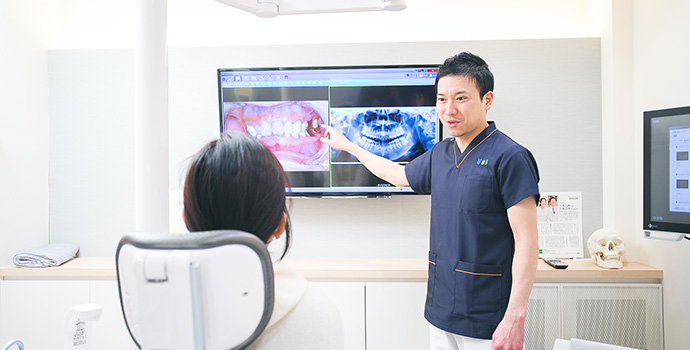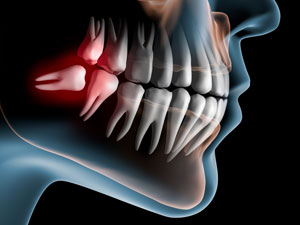About Oral Surgery
Features of our clinic
As a home doctor for the mouth, we treat oral diseases and problems

Oral surgery deals with injuries and diseases of the mouth, jaw, face, and surrounding areas. In this area, a variety of diseases occur, ranging from those caused by teeth to cancer. There are also diseases of the oral mucosa, jaw deformities, and traumatic injuries such as traffic accidents and sports injuries.
In addition to functional problems such as difficulty in eating, pronunciation, and conversation, diseases and injuries related to the mouth can also cause esthetic problems since the mouth is a conspicuous part of the body. Our goal is to restore the natural form and function of the mouth and restore its healthy beauty. Wisdom teeth extraction, mouth injuries, and TMJ disorder are also available for consultation. If necessary, we will refer you to a trusted specialist.
We can help you with your wisdom teeth.

Wisdom teeth are the eighth tooth counting from the front and are also known as third molars or wisdom teeth. Depending on how they erupt, they can be difficult to brush and are prone to tooth decay and gum disease. In addition, since it is the rearmost tooth, it is difficult to reach with treatment instruments and to maintain afterwards, so there is a high possibility of recurrence even if it is treated. Furthermore, in the worst case scenario, it is recommended that the tooth be extracted as soon as possible because it can involve the healthy tooth (No. 7) in front of it.
Anesthesia is less effective after decay or periodontal disease has set in, and extraction may take longer. Younger patients tend to have smoother bone recovery after extraction, and if left untreated, wisdom teeth may fuse to the bone. When you are old enough to have wisdom teeth (around 20 years old or older), you should get a diagnosis and check the growth of your wisdom teeth.
Extraction is recommended in these cases
- When only part of the tooth is visible
- Wisdom teeth are growing sideways.
- When they are completely buried in the bone but there is a radiographic problem
- When there is a risk of misalignment of the teeth
Wisdom tooth grafts
A tooth graft is a treatment in which wisdom teeth or non-functioning teeth (e.g., incisors) are transplanted when a cavity is too large to reach the root of the tooth, when a tooth is broken due to injury and cannot be retained, or when a tooth is not present at birth. The transplanted tooth functions just like any other tooth. The probability of success is especially high in younger age groups, and because the periodontal ligament is present, just like a natural tooth, the patient can chew with the same natural sensation as his or her own teeth.
If the condition is met, such as the tooth that can be transplanted being a “wisdom tooth” and if there is still a tooth remaining in the area to be transplanted, it will be covered by insurance. Please note, however, that insurance will not cover teeth that have already been extracted or teeth that were originally missing.
Conditions for tooth transplantation
- The patient must be around 40 years of age.
- Patients must have appropriate grafted teeth (mainly wisdom teeth) in the mouth.
- The size of the grafted tooth and the graft site (recipient side) must match.
